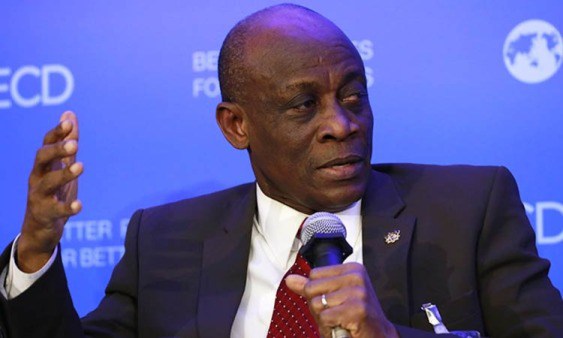Seth Terkper, a former Minister of Finance, has urged African governments to strive to make their debts sustainable to attract development finance assistance.
“Africa must do something about its debt, otherwise, we might be shut out of development finance,” Mr Terkper who led Ghana’s 16th International Monetary Fund (IMF) loan-support programme, said.
Mr Terkper, also the Executive Director of Public Financial Management (PFM) Tax Africa Network – a consulting firm, was engaging journalists virtually on the back of the just ended International Monetary Fund/World Bank Group (WBG) annual meetings in Washington, US.
He explained that because many African countries have reached lower and middle-income status, they could no longer rely on grants and concessional financing for sustainable development and poverty alleviation.
As such, development finance would be supportive going forward, hence, the need for African governments to assiduously work towards resolving their debt burden.
In its April 2024 Regional Economic Outlook for Sub-Saharan Africa, the IMF observed that after four turbulent years, the region has seen some gradual improvement.
The region’s growth is projected to rise from 3.4 per cent in 2023 to 3.8 per cent in 2024, but the report noted that “not all is favourable,” as the funding squeeze persisted.
The report indicated that governments in the region continued to grapple with financing shortages, high borrowing costs, and impending debt repayments, which ought to be dealt with.
“Amid these challenges, sub-Saharan African countries will need additional support from the international community to develop a more inclusive, sustainable, and prosperous future,” the report noted.
Regarding policies policy priorities, Mr Abebe Aemro Selassie, African Department, IMF, said it was important for African governments to continue to improve public finances, with an emphasis on domestic revenue mobilisation.
He was speaking on the release of the April IMF Regional Economic Outlook for Sub-Saharan Africa, last week.
He also encouraged a sustained focus on inflation reduction, while implementing reforms to enhance skill development, spur innovation, improve the business environment, and promote trade integration to secure more affordable and stable financing.
Latest Stories
-
Paris 2024: Opening ceremony showcases grandiose celebration of French culture and diversity
2 hours -
How decline of Indian vultures led to 500,000 human deaths
3 hours -
Paris 2024: Ghana rocks ‘fabulous fugu’ at olympics opening ceremony
3 hours -
Trust Hospital faces financial strain with rising debt levels – Auditor-General’s report
4 hours -
Electrochem lease: Allocate portions of land to Songor people – Resident demand
4 hours -
82 widows receive financial aid from Chayil Foundation
4 hours -
The silent struggles: Female journalists grapple with Ghana’s high cost of living
4 hours -
BoG yet to make any payment to Service Ghana Auto Group
4 hours -
‘Crushed Young’: The Multimedia Group, JL Properties surprise accident victim’s family with fully-furnished apartment
5 hours -
Asante Kotoko needs structure that would outlive any administration – Opoku Nti
5 hours -
JoyNews exposé on Customs officials demanding bribes airs on July 29
6 hours -
JoyNews Impact Maker Awardee ships first consignment of honey from Kwahu Afram Plains
7 hours -
Joint committee under fire over report on salt mining lease granted Electrochem
7 hours -
Life Lounge with Edem Knight-Tay: Don’t be beaten the third time
7 hours -
Pro-NPP group launched to help ‘Break the 8’
8 hours

